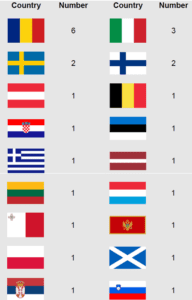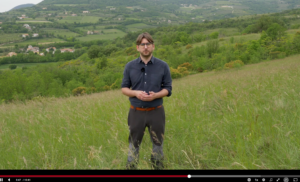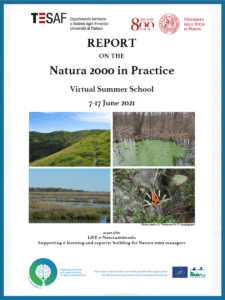Virtual Summer School: Report on the Natura 2000 in practice
Between the 7th and 17th of June 2021 the “Natura 2000 in Practice” Virtual Summer School was held by LIFE e-Natura 2000.edu project partner, the Department of Land, Environment, Agriculture and Forestry (TESAF) of the University of Padova for managers of Natura 2000 sites.
The Virtual Summer School aimed to disseminate in-depth knowledge on innovative aspects related to the management of Natura 2000 sites and develop practical, technical skills among participants on the ecological and planning tools towards the appropriate management of these Protected Areas.
Adapting to challenges
Due to continuous regulatory restrictions and the uncertainties around COVID 19, the (Virtual) Summer School – originally planned as a face to face event – took place in June 2021. Field visits were modified into virtual field visits and several other materials were used and made available on the purpose-built Moodle.
Participants, trainers and partners involved
The Virtual Summer School had 27 Participants coming from a wide variety of European countries.

Virtual Summer School Participants’ Countries
A total of 10 trainers participated in the Virtual Summer School. They came from Italy, Romania, the UK, France, Spain, and the Netherlands, as well as various institutions including private companies, university, freelancers and private foundations.
All LIFE project partners were involved in the Virtual Summer School:
- TESAF and EUROPARC formed the main organising group and had trainers in the live learning sessions;
- FUNGOBE and ProPark provided one trainer each, and
- Kullaberg Nature Reserve and European Landowners Organization participated in the live learning sessions.
- Representatives of all partners accessed the Moodle page of the Virtual Summer School (TESAF 3, EUROPARC 2, FUNGOBE 1, ProPark 1, ELO 1, Kullaberg 3).
Interactive tools and engaging materials
A number of different tools were used to effectively convey all information during the Virtual Summer School. All materials (registrations, videos, documents, weblinks, forum etc.) were made available on the purpose-built Moodle and the live sessions were
conducted via Zoom.
MURAL, Zoom Pool and Mentimeter were used to stimulate participation and sharing of ideas. Virtual field visits were presented by means of specifically created videos. These videos regarded monitoring and management of habitat types and habitat of species in two Natura 2000 sites (“Colli Euganei – Monte Lozzo – Monte Ricco” and “Grave e Zone umide della Brenta”).

Virtual field visit video
What topics did the virtual school focus on?
The aim of the Virtual Summer School was to train public and private staff in the management and planning of Natura 2000 sites, applying innovative tools to adhere to the requirements of the Habitats Directive covering Natura 2000 sites.
The main topics addressed in the different parts of the Virtual Summer School and the live training sessions were:
- conservation status,
- conservation degree and favourable reference values of habitat types and species
- pressures and threats
- article 17 reporting
- site conservation objectives and measures
- restoration and monitoring actions
- field surveys and remote sensing
- facilitation and participatory processes
- community outreach
- communication and collaboration
In the first five days, the focus was given to applied technical issues. On days 6 and 7, the trainers focused on aspects related to social sciences. One session, held on the last day 8, focused on technical issues but also showed the importance of communication and participation by stakeholders.
This experience highlighted the importance of and interest in deepening methods towards improving knowledge and awareness on Natura 2000 for managers.
You can find the full Report with a detailed description of the Virtual Summer School in all of its stages, as well as additional materials regarding the programme, here: Virtual Summer School – Report – online version-FINAL 18.08.21
